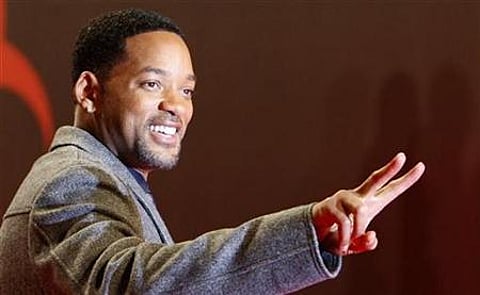

The annual Hollywood extravaganza, the Oscar ceremony was marred by an unprecedented incident that stoked a raw nerve globally. At the 94th Academy Awards, comedian Chris Rock was at the receiving end of an outburst from Best Actor nominee Will Smith (who subsequently bagged his award that night), after the former took a dig at Smith’s wife’s hairdo. The joke, which failed to make a soft landing, especially when considered in the context of the medical condition suffered by the actor’s wife, resulted in an altercation where Smith walked upto Rock and slapped him in full public view.
The film fraternity and netizens on Twitter condemned Smith’s violent outburst, saying that it was unbecoming of a man in the public eye. While Smith did issue an apology to everyone involved, including the comedian, it seems the damage was done. The furore over the slapgate controversy is worth deliberating upon for two reasons. One of them is regarding the outer limits of humour and the other has to do with the behaviour expected of those under the media glare. Let’s deal with the first one. For several decades, American media has taken pride and boasted about the sense of irreverence it has helped perpetuate on screen through TV programmes, cinema and stand-up. Thanks to a hyperbolic tradition of sticking to the US Constitution’s First Amendment, which guarantees its citizens freedom of speech, the nation’s programmes are rife with examples of takedowns, critiques, lampooning and roasting of public figures.
It’s the reason why documentary filmmakers like Michael Moore can create narratives that call out a head of state even when he is holding office, pinning the blame of the War on Terror on the likes of erstwhile US President George W Bush. The fact that humour occupies a pride of place even in the American political subconscious is highlighted by the fact that there’s a White House Correspondents’ Dinner organised every year where comedians get to make fun of the President and his policies. On most occasions, the jokes are taken in a sporty, healthy spirit. Of course, Donald Trump made it a point to skip the dinners throughout his four-year stint, for obvious reasons.
But can one imagine an event similar to that being conducted in India? Forget about jokes, even political commentary can get investigative journalists in trouble here — which explains why popular news media outlets are often compelled to tone down their commentaries and cartoons. But we digress. In a society like that of America, no topic is seemingly off-limits, taboo or unmentionable.
Everything from sexuality to suicides, child abuse, harassment, racism, the Holocaust, 9-11 and nepotism is fodder for jokes, as seen in the ceremonial outbursts of comedians like Ricky Gervais. How he has managed to get a free pass from the entertainment industry for several years now is something beyond us. Maybe, there are a lot of things you can get away with if you happen to be white, read some of the slapgate responses on Twitter. Had the attacker been a white man or a white woman or had the victim of the attack hailed from a different race, this might have been an altogether different conversation.
Now, let’s address the behaviour expected of those in the public eye. The notion of celebrity has little to do with setting a positive example for society. The media thrives on them lashing out, spewing expletives and even manhandling others when things don’t go their way. In the aftermath of slapgate, a female comedian said, it was nice to see a man stand up for his wife and that sometimes, disciplining is required to drive home the point. However, no matter what the provocation, no one said it better than Will Smith himself who admitted that “violence in all of its forms is poisonous and destructive”. And that is the only lesson we should be taking back from this unfortunate episode.
Visit news.dtnext.in to explore our interactive epaper!
Download the DT Next app for more exciting features!
Click here for iOS
Click here for Android